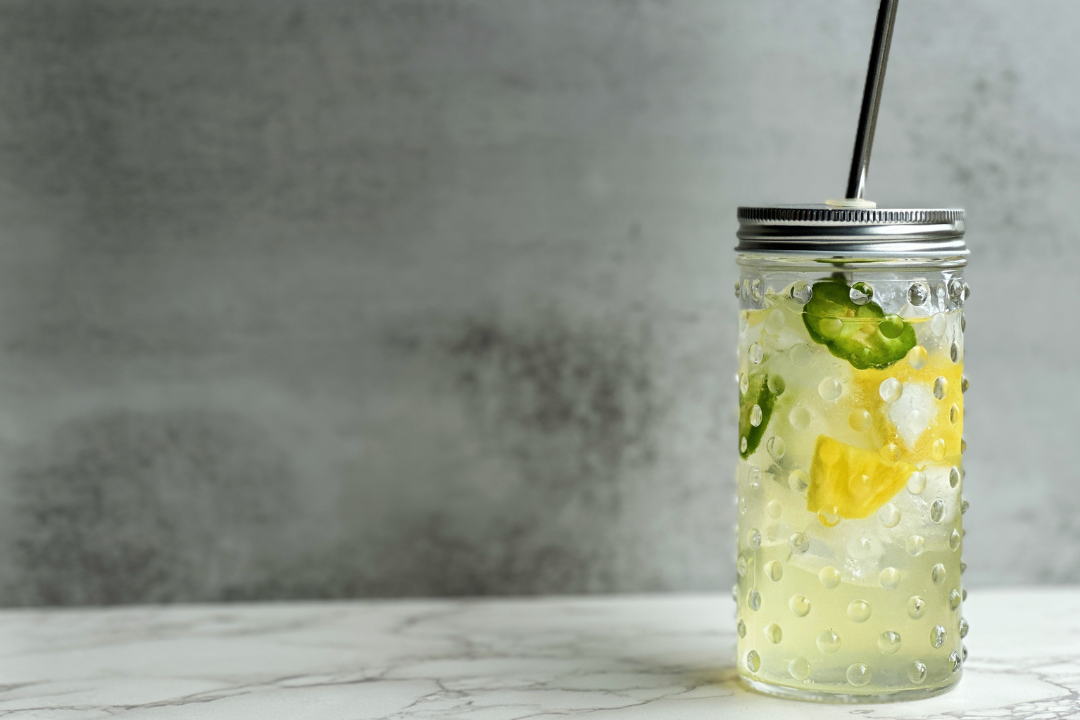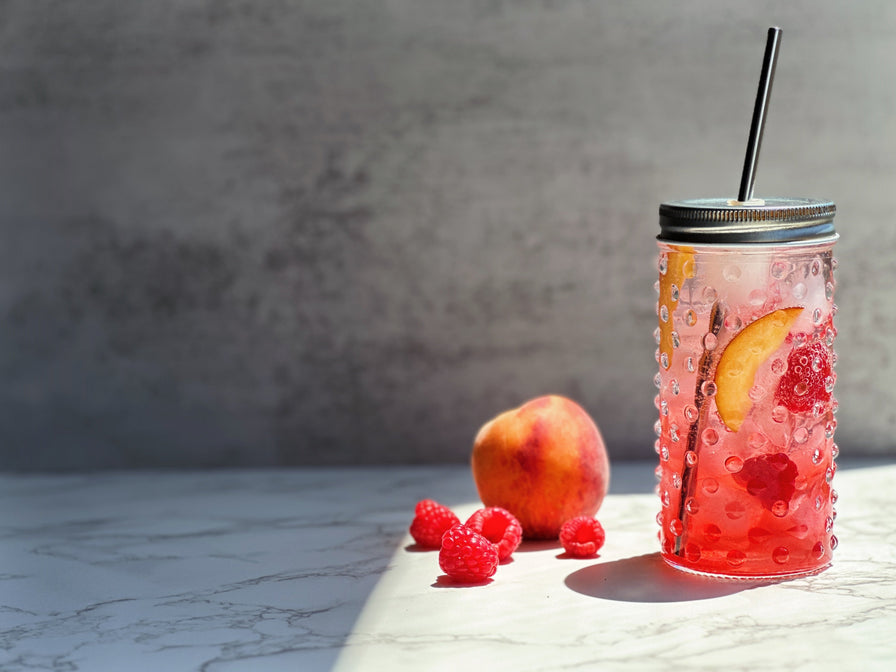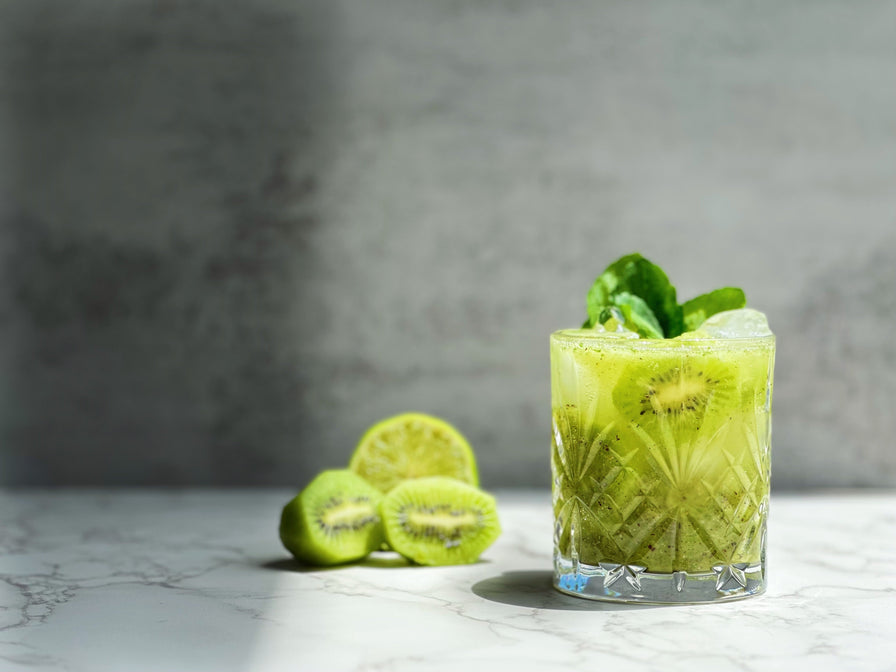
Pineapple Soda

Calling all pineapple fans! If you're anything like us, you likely have pineapple on rotation in your home, but if you're simply eating pineapple and not drinking it, then we have a game-changer recipe for you! Pineapple Soda is the sweetest and tastiest summer recipe on the market and we are going to teach you how to make it from your very own kitchen for a fraction of the cost and with sustainability in mind. We also have a great alternative recipe for those who enjoy pineapple with a spicy twist. Let's get cooking!
How to Make Pineapple Soda
Pineapple Soda
Ingredients
Instructions
Are Pineapples Healthy?

Indeed they are! Pineapples are a great source of Vitamin C, manganese, and dietary fiber. They can also help reduce inflammation and boost your immune system. Many enjoy pineapple after a hard workout as the anti-inflammatory benefits can aid in faster muscle recovery.
Learn more about our CO2 exchange program and start making Pineapple Soda today.
The Ananas comosus, the shrub that produces pineapples, can take up to 3 years to grow and mature until it's ready to produce fruit. Keep in mind, one pineapple plant can make only one pineapple fruit at a time making this delicious fruit a form of rarity in a sense!
Pineapples For Muscle Recovery
Pineapples, revered for their tropical sweetness and vibrant flavor, offer more than just a delightful culinary experience. They also possess properties that can aid in muscle recovery, making them a valuable addition to the diets of active individuals and athletes. One of the key factors contributing to pineapples' muscle-recovery benefits is their rich content of bromelain, a group of enzymes with potent anti-inflammatory and protein-digesting properties.
Bromelain, found predominantly in the stem and core of the pineapple, has been shown to help reduce muscle soreness and inflammation following intense exercise. By mitigating inflammation, bromelain may accelerate the healing process and alleviate discomfort, enabling individuals to recover more quickly and return to their training routines. Moreover, bromelain's protein-digesting abilities may aid in breaking down and absorbing nutrients, including essential amino acids, which are crucial for repairing and rebuilding muscles. This can facilitate the restoration of muscle tissue and contribute to enhanced recovery rates.
Incorporating pineapples into a post-workout or recovery-focused diet can be as simple as enjoying them fresh, blended into smoothies, or added to dishes. Their natural sweetness not only satisfies taste buds but also provides a source of natural sugars that can replenish glycogen stores, the primary energy source for muscles during exercise. While pineapples alone won't replace other vital aspects of muscle recovery, such as proper hydration, rest, and a well-balanced diet, they undoubtedly offer a flavorful and nutritious means of supporting the body's healing processes after strenuous physical activity.
Is Sparkling Water Safe to Consume Daily?
Yes, sparkling water is safe to drink daily as long as it’s not full of added sugar and artificial flavors. It's a great way to stay hydrated throughout the day and can actually leave your body feeling hydrated faster than regular water. We recommend making sparkling water from home using a soda maker. When you make drinks from home, you can rest easy knowing each ingredient is safe and healthy to consume. Not to mention you can also control the carbonation levels!
If you already have a soda machine at home, making sparkling water has never been easier with the Soda Sense Refill Club. Order your FREE Refill Box today and start exchanging CO2 a better way!
What's the Difference Between Sparkling Water vs. Club Soda?
Sparkling water is made from natural, filtered tap water. The gas that makes it ‘sparkling’ in the form of carbon dioxide is added to the water usually through a soda maker or purchased from a bottle. In contrast, Club Soda is treated with minerals such as sodium bicarbonate and potassium sulfate for a slightly saltier flavor, making Club Soda more artificial in its production.
Make sparkling water from home and start exchanging your CO2 canisters today!
The Sustainable Journey of Pineapple Production

Pineapples, with their juicy sweetness, are not only a delight to your taste buds but also have an interesting journey from cultivation to your table. Let's dive into the sustainable aspects of pineapple production and how you can make mindful choices while enjoying this tropical fruit.
1. Eco-Friendly Pineapple Farming Practices
To ensure a sustainable supply of pineapples, some farmers adopt eco-friendly practices during cultivation. One such method is companion planting, where pineapples are grown alongside other plants to improve soil fertility and reduce the need for synthetic fertilizers. Additionally, rainwater harvesting and drip irrigation systems are implemented to conserve water and minimize wastage. Supporting brands that source their pineapples from such sustainable farms can promote responsible agricultural practices.
2. Reducing Food Waste with Pineapple Scraps
Did you know that you can minimize food waste by utilizing pineapple scraps? After extracting the pineapple syrup, you can use the leftover pineapple peels and cores to make a delicious and nutritious pineapple-infused water. Simply add the scraps to a large pitcher of water and let it sit in the fridge for a few hours. This infused water not only tastes refreshing but also contains some of the pineapple's nutrients. Making the most out of the entire fruit demonstrates your commitment to sustainability and reducing your environmental impact.
Fun Facts About Pineapples You Didn't Know
1. A Symbol of Hospitality and Luxury
Pineapples have a rich history and cultural significance beyond just being a tasty fruit. Pineapples were previously considered a luxurious and rare treat, often presented as extravagant gifts to royalty and distinguished guests. In the 18th century, pineapples became a symbol of hospitality, and wealthy hosts would go to great lengths to display them at their gatherings. To showcase their affluence, they even rented pineapples for the night to impress their guests! As this tradition continued, pineapples became a well-known emblem of warmth, welcome, and friendship-- making them a popular decorative motif in architecture, furniture, and art.
2. Nature's Meat Tenderizer
Aside from being delicious and nutritious, pineapples also contain an extraordinary enzyme called Bromelain. Bromelain is a natural mixture of proteolytic enzymes, meaning it breaks down protein molecules. This enzyme has unique properties that make it an excellent meat tenderizer. It works by breaking down the collagen fibers in tough cuts of meat, making them more tender and easy to chew. Many chefs and home cooks use fresh pineapple juice or puree as a marinade to tenderize meat before cooking. Bromelain is not only useful in the kitchen; it also has potential health benefits. Some studies suggest that Bromelain may aid in digestion, reduce inflammation, and even promote wound healing. So, next time you enjoy a pineapple-infused dish, you can thank Bromelain for its tenderizing magic and potential health perks!
3. Pineapples Come in a Variety of Different Colors
When you think of pineapples, you probably envision the classic golden-yellow fruit with spiky green leaves, but did you know that there are several pineapple varieties with unique colors and flavors? For example, there is the"Red Spanish" pineapple, which has reddish-brown skin and golden-yellow flesh. Its flavor is slightly more tangy and tart compared to the common yellow pineapple. Another kind is the "Sugarloaf" pineapple, which is smaller and cone-shaped, with pale yellow flesh and a sweeter taste. The "Sugarloaf" is less fibrous than the traditional pineapple-- making it a favorite among those who prefer a smoother texture. Additionally, the "White Jade" pineapple is a rare gem known for its vibrant white flesh and sweeter, milder taste. Each of these pineapple varieties offers a unique taste, so the next time you're at a specialty market or exotic fruit stand, keep an eye out for these delightful alternatives to the traditional yellow pineapple!
Next time you think you know everything there is to the classic pineapple. think again! Don't forget to impress your friends and family with these fun pineapple facts while you're serving them your delicious Pineapple Soda. Cheers!
Follow us on Tik-Tok, Instagram, or Facebook to see this drink come to life! Make sure you tag us if you make our drinks, so we can show you off!
Recommended reading



